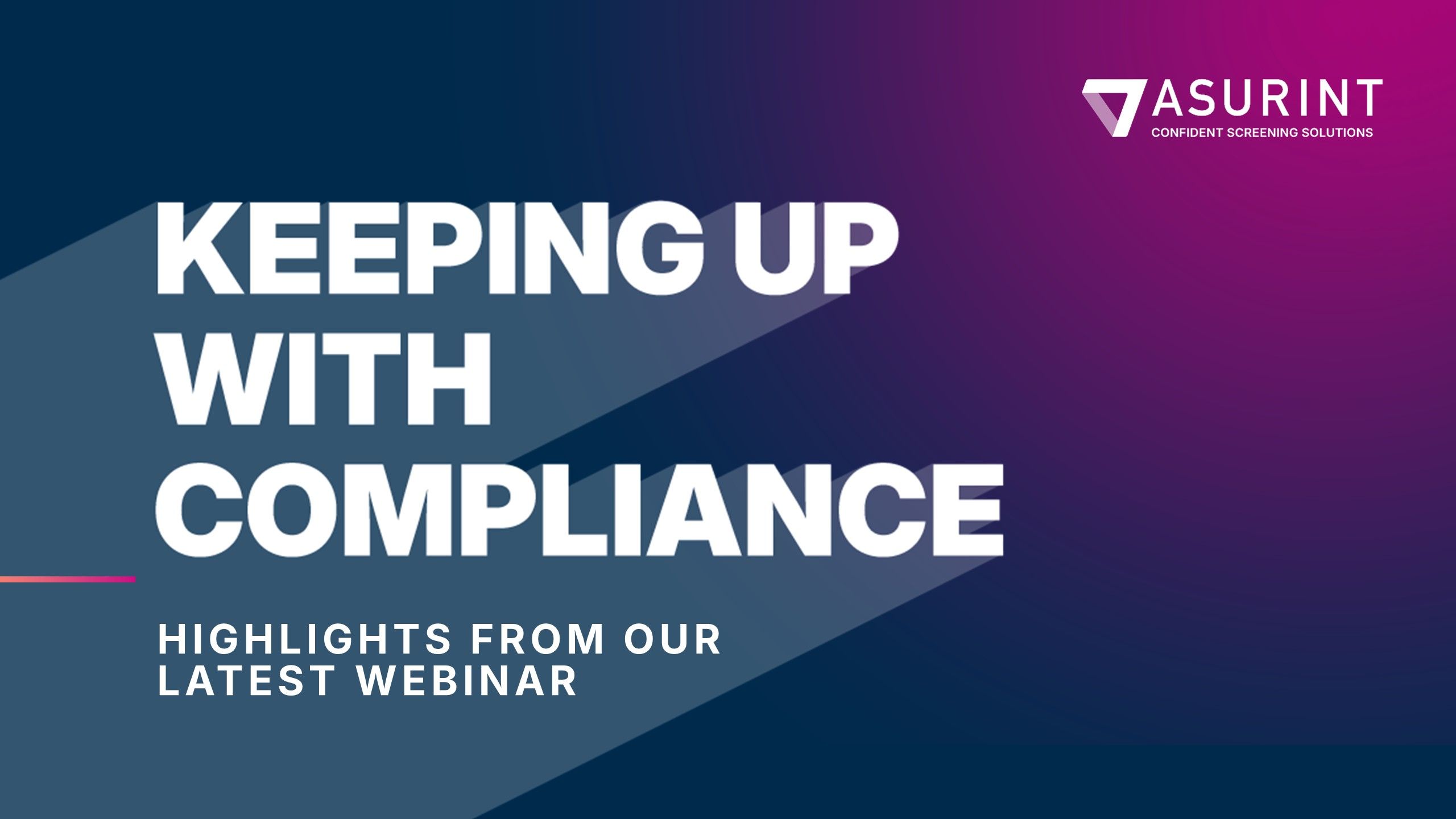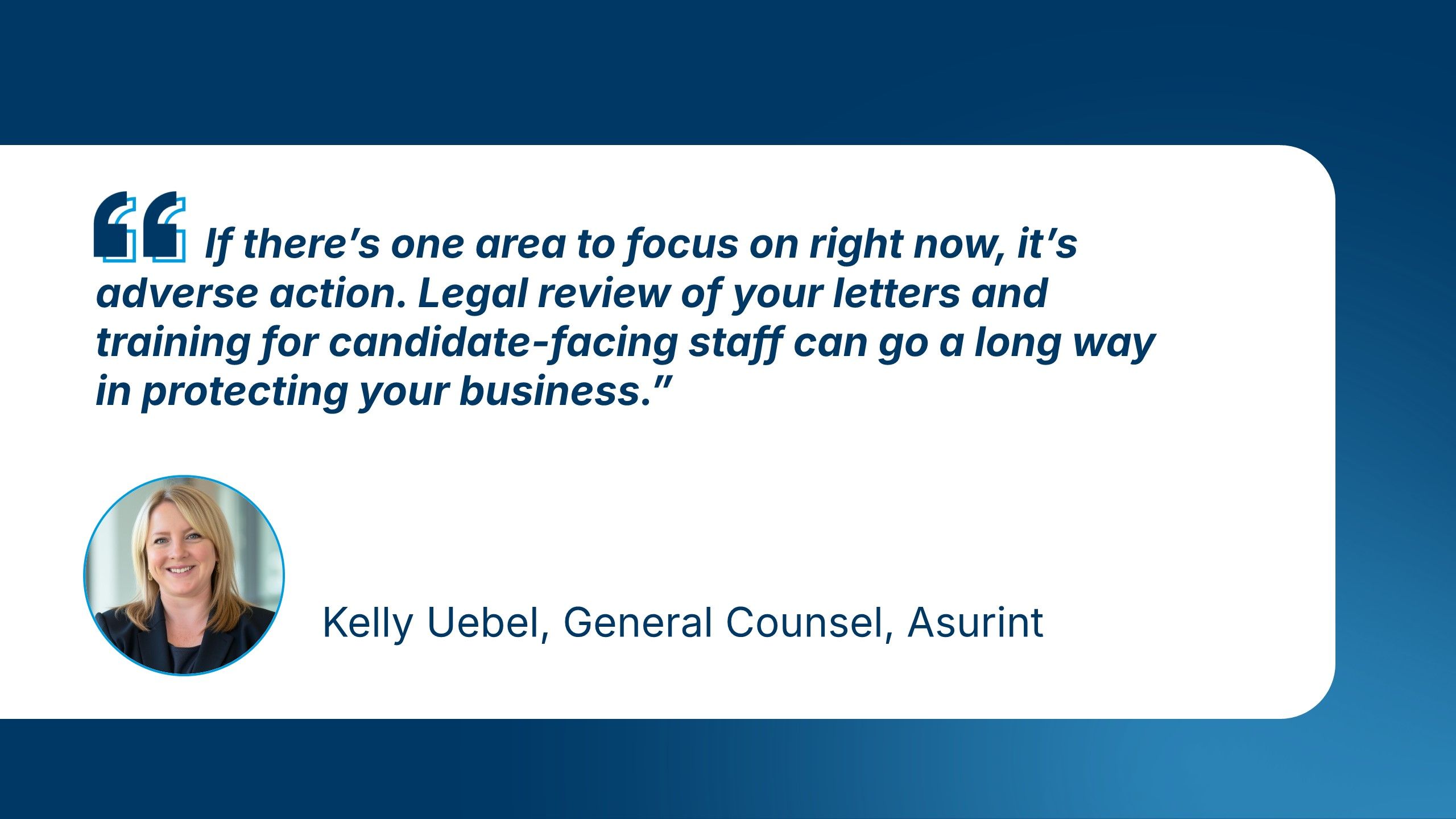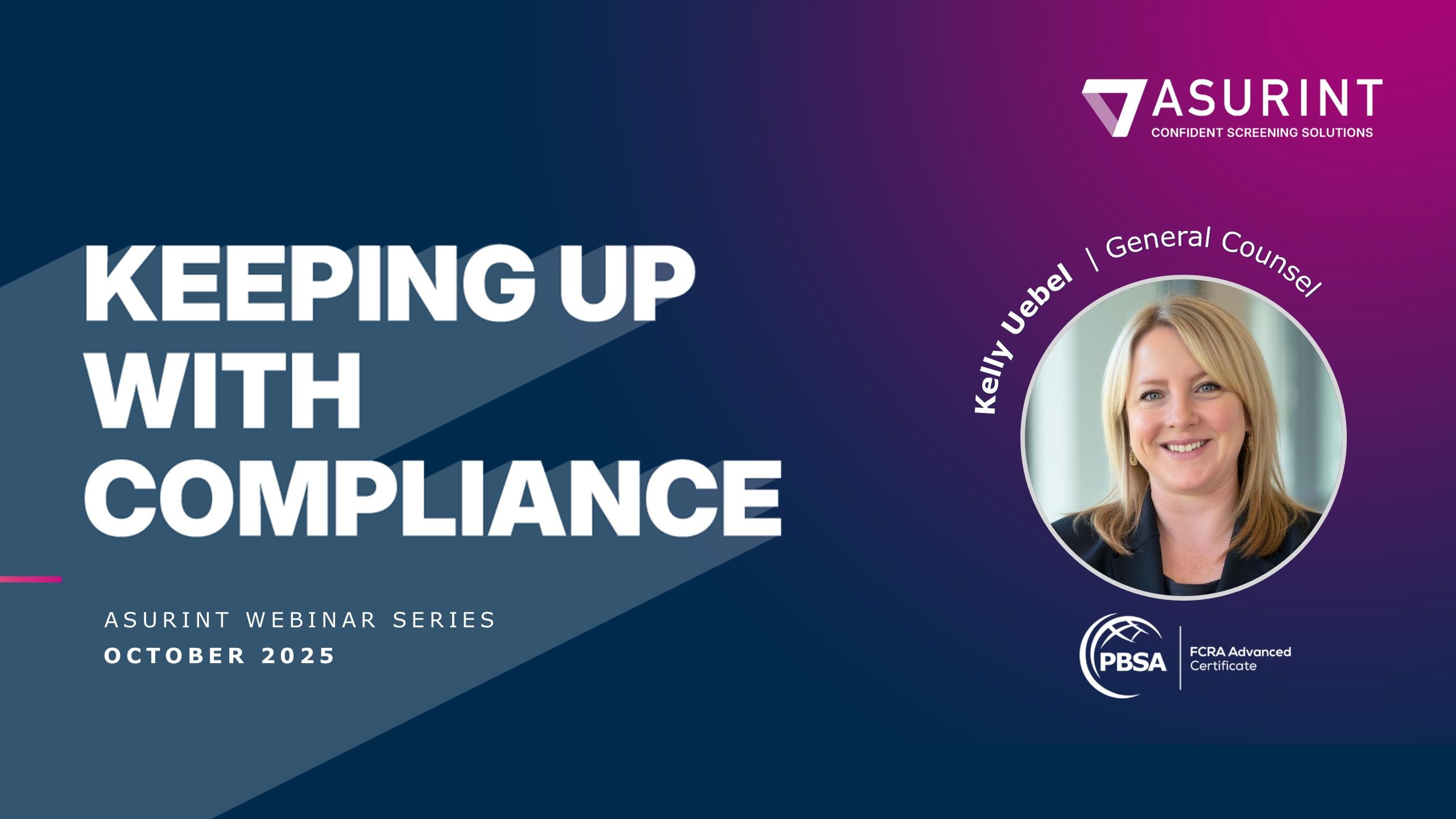What’s New in HR Compliance? Highlights from Our Latest Webinar
3 min read
Published
Nov 05, 2025

In Asurint’s final compliance webinar of 2025, Keeping Up with Compliance: Legal Updates for Q4, General Counsel, Kelly Uebel, breaks down the most impactful changes HR professionals need to know heading into 2026.
Here’s a glimpse at three major takeaways from the webinar.
Watch the full on-demand webinar for the complete breakdown.
EEOC Quorum Restored: What’s Next?
With a new commissioner confirmed in October, the U.S Equal Employment Opportunity Commission (EEOC) now has a functioning quorum, two Republicans and one Democrat, allowing it to resume regulatory activity and revisit guidance, including the Pregnant Workers Fairness Act and Harassment in the Workplace.
Kelly explains, “Legal professionals are predicting an increased focus on religious rights for workers and continued support for reverse discrimination claims. We’re already seeing the EEOC’s priorities shift.”
The EEOC also announced it will close all pending charges related to disparate impact discrimination. This decision will significantly influence how the agency investigates employers' use of criminal background checks in hiring decisions going forward.
Adverse Action Litigation Is Heating Up
Recent lawsuits and multimillion-dollar settlements show that adverse action compliance is being closely looked at. Employers, including this large retailer, are being challenged for failing to provide proper notices, copies of background reports, and "A Summary of Your Rights Under the Fair Credit Reporting Act” before denying employment.
Kelly advises, “If there’s one area to focus on right now, it’s adverse action. Legal review of your letters and training for candidate-facing staff can go a long way in protecting your business.”

Even small missteps in this process can lead to costly litigation, making it a top priority for HR, safety, and security teams.
Philadelphia’s Fair Chance Law Gets a Major Update
Effective January 6, 2026, Philadelphia’s Fair Chance Law will require broader individualized assessments and more detailed adverse action notices. Employers must now consider specific evidence of rehabilitation, like job training and community service, before making decisions based on criminal records.
The law maintains the 10-business-day waiting period between the pre-adverse and final adverse action letters. It also clarifies that employers cannot consider misdemeanors older than four years, sealed records, or summary offenses, adding to the existing restriction on considering felony records older than seven years.
Kelly advises employers to work with their background screening provider to understand what steps they are taking to help facilitate compliance with these new requirements.
Watch the Full Webinar On-Demand
This blog only scratches the surface. Be sure to watch the full webinar, which covers additional updates on drug testing, marijuana legislation, local ordinance changes across multiple states, and more.
And if you’re looking for more resources, Asurint’s updated 50-State Guide to Employment Background Screening Laws is available to download on the website.
You might also like

Legislative Sessions Heating Up: Fair Chance Laws Remain Focus
State legislatures have been actively addressing a range of key issues, with fair chance laws emerging as a particularly popular focus.

New Mexico Senate Introduces Employment Protections for Medical Marijuana Users
The New Mexico Senate introduced SB 129, “Adverse Employment Action & Cannabis”.

Third Circuit Finds Pennsylvania’s Criminal Records Law Applies to Self-Disclosures
Employers hiring in Pennsylvania should take note of a recent court ruling from the U.S. Court of Appeals for the Third Circuit.


